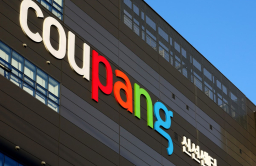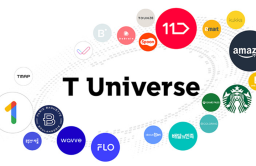-
KOSPI 2577.27 -2.21 -0.09%
-
KOSDAQ 722.52 -7.07 -0.97%
-
KOSPI200 341.49 +0.02 +0.01%
-
USD/KRW 1396 -2.00 0.14%
Korea's first-generation platforms collapse, ringing in new e-commerce era
E-commerce
Korea's first-generation platforms collapse, ringing in new e-commerce era
Pioneers of domestic e-commerce market are exiting one by one as they can't compete with newcomers
By
Oct 05, 2021 (Gmt+09:00)
2
Min read
News+

South Korea's first-generation e-commerce platforms, which have been around since the 1990s, are rushing to sell off their businesses as their valuations surge amid the e-commerce boom ushered in by the global pandemic.
On the surface, it may seem like a great opportunity for the country's pioneers of e-commerce, but underneath it shows that they are no longer able to compete against the newcomers.
According to the investment banking industry, Danawa Co., one of Korea's initial e-commerce platforms, is looking to sell a combined 51.35% stake held by its biggest shareholder Sung Jang-hyun, the chairman of the board of directors, and affiliated shareholders.
Founded in 2000, Danawa started as a platform that offered price comparisons mostly for computer parts, which has expanded to include a much broader range of products. The company also operates an online shopping mall.
The company has hired NH Investment & Securities Co. as the sale manager and recently wrapped up the preliminary bidding, which attracted around 10 potential buyers.
Another first-generation platform Interpark Corp. is also looking for a buyer. Since its inception in 1997, the company has been referred to as the Amazon.com of Korea given its influence in the domestic e-commerce industry alongside setting up Gmarket, an online shopping platform that was sold to eBay Korea in 2008.
Interpark plans to sell a combined 28.4% stake in the company held by its largest shareholder Lee Ki-hyung and affiliated shareholders. The company has also hired NH Investment & Securities to oversee the sale process.
The world’s No. 2 online travel platform Trip.com and GC Company Corp., which operates Korea’s major accommodation booking app, are expected to participate in the deal since Interpark accounts for a significant market share in Korea's travel and ticket booking market.
Also earlier this year, retail giant Shinsegae Group acquired eBay Korea, which holds shopping platforms Gmarket and Auction. Shinsegae’s subsidiary E-Mart Inc. purchased around an 80% stake in eBay Korea for 3.4 trillion won.

CLOCK RUNS OUT FOR FIRST-GENERATION PLATFORMS
Following the series of events, industry experts say that the first-generation platforms are no longer capable of surviving in the competitive e-commerce market.
Initially, the price comparison tool was a competitive feature for the first wave of e-commerce platforms, but it wasn't able to create additional worth for the data-rich companies.
Meanwhile, new e-commerce platforms have been successful in generating additional value. For example, Korea’s leading portal operator Naver Corp. has been enhancing its artificial intelligence-based recommendation tool by using its vast search data.
Also, the New York Stock Exchange-listed e-commerce titan Coupang Inc. has stressed its forte in fast delivery by providing fulfillment services in addition to price comparisons.
“The capital market has become favorable towards e-commerce platforms due to the COVID-19 crisis, and the fact that first-generation e-commerce platforms are up for sale shows that they've also accepted that their time is up,” said an IT industry official.
Write to Min-ki Koo at kook@hankyung.com
Danbee Lee edited this article.
More To Read
-
Sep 10, 2021 (Gmt+09:00)
-
Aug 31, 2021 (Gmt+09:00)
-
Aug 26, 2021 (Gmt+09:00)
-
Aug 03, 2021 (Gmt+09:00)
-
Jun 24, 2021 (Gmt+09:00)







